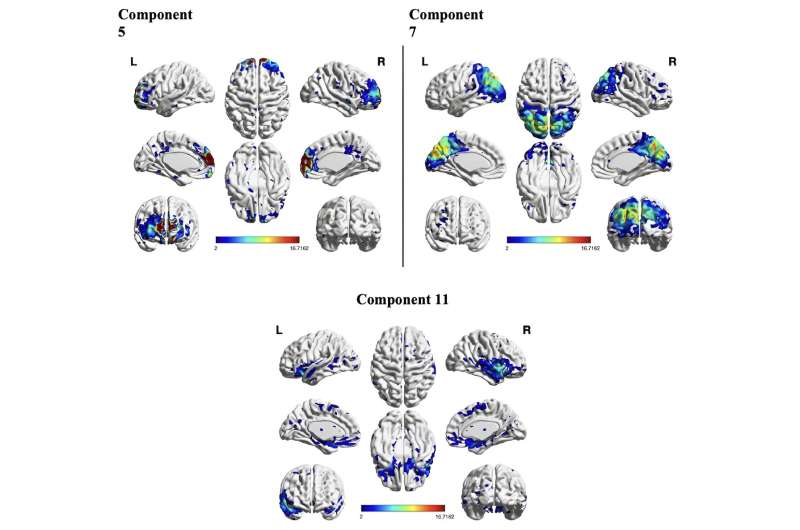
Mindfulness practices are meditative exercises that encourage people to bring their awareness to what they are experiencing in the present moment, while trying not to interpret or judge these experiences. Studies have found that these practices can have numerous benefits, for instance relieving stress, improving the quality of sleep, and supporting the processing of emotions.
Exercises aimed at fostering mindfulness (i.e., a mental state marked by openness, awareness and attention on the present moment) are now used as psychotherapeutic tools in many countries worldwide. They are also a crucial component of many psychotherapy approaches, such as mindfulness-based cognitive therapy (MBCT), acceptance and commitment therapy (ACT) and the mindfulness-based stress reduction (MBSR) program created by Prof. Jon Kabat-Zinn.
Researchers at University of Wisconsin-Madison and Virginia Commonwealth University recently carried out a study aimed at investigating the effects of brief mindfulness practices on the organization of large-scale brain networks and on intimate partner aggression.
Their findings, published in Cognitive, Affective, & Behavioral Neuroscience, suggest that even a few minutes of attention-based mindfulness meditation training leads to noticeable changes in the activity and organization of crucial neural networks.
“Mindfulness can produce neuroplastic changes that support adaptive cognitive and emotional functioning,” Hadley Rahrig, Liangsuo Ma and their colleagues wrote in their paper.
“Recently interest in single-exercise mindfulness instruction has grown considerably because of the advent of mobile health technology. Accordingly, the current study sought to extend neural models of mindfulness by investigating transient states of mindfulness during single-dose exposure to focused attention meditation.”
The data analyzed by Rahrig, Ma and their collaborators was collected as part of a larger study investigating romantic relationships. This study involved 51 adult heterosexual couples who had been dating for a period of at least six months.
These couples were separated and asked to complete either a 10-minute mindfulness meditation practice or a 10-minute relaxation exercise. The brain activity of these participants was recorded using magnetic resonance imaging (MRI), a non-invasive technique that captures images of the brain or other structures in the human body using magnetic and radio waves.
The couples were subsequently also asked to complete a task evaluating their behavioral aggression, where they had to press a button faster than their opponents. These opponents, which were in fact automated by a computer program, were said to be either a stranger, a close friend, or their intimate partner.
The team’s analysis of experimental data yielded interesting results, which aligned with other findings gathered in the past. Specifically, the researchers found that the 10-minute mindfulness meditation exercise increased functional connectivity within the frontoparietal control network (FPCN) and the salience network (SN), while reducing coherence in the so-called default mode network (DMN).
While it influenced brain connectivity patterns, the short mindfulness training did not significantly impact the aggression that participants displayed towards what they believed to be their romantic partners during the behavioral task. This does not necessarily mean that mindfulness practices do not help to reduce aggressive behavior, but simply suggests that such a short training does not.
“Mindfulness instruction reduced coherence within the default mode network and increased functional connectivity within the frontoparietal control and salience networks,” Rahrig, Ma and their colleagues wrote.
“Additionally, mindfulness decoupled primary visual and attention-linked networks. Yet, this induction was unable to elicit changes in subsequent intimate partner aggression, and such aggression was broadly un-associated with any of our network indices. These findings suggest that minimal doses of focused attention-based mindfulness can promote transient changes in large-scale brain networks that have uncertain implications for aggressive behavior.”
Overall, the findings gathered by these researchers show that even a short mindfulness meditation exercise can influence the organization and activity of large-scale neural circuits.
Based on observed changes in the participants’ brains after the exercises, Rahrig, Ma and their colleagues hypothesize that mindfulness promotes the decoupling between brain regions associated with the processing of visual stimuli and neural networks linked with attention.
This recent study could soon pave the way for further research exploring the impact of both occasional and regular mindfulness practices on neural connectivity, intimate partner aggression and perhaps other behaviors manifested in romantic relationships. Collectively, this work could help to unveil other potential benefits of mindfulness exercises and their effects on the brain.
More information:
Hadley Rahrig et al, Inside the mindful moment: The effects of brief mindfulness practice on large-scale network organization and intimate partner aggression, Cognitive, Affective, & Behavioral Neuroscience (2023). DOI: 10.3758/s13415-023-01136-x.
Journal information:
Cognitive, Affective, & Behavioral Neuroscience
Source: Read Full Article